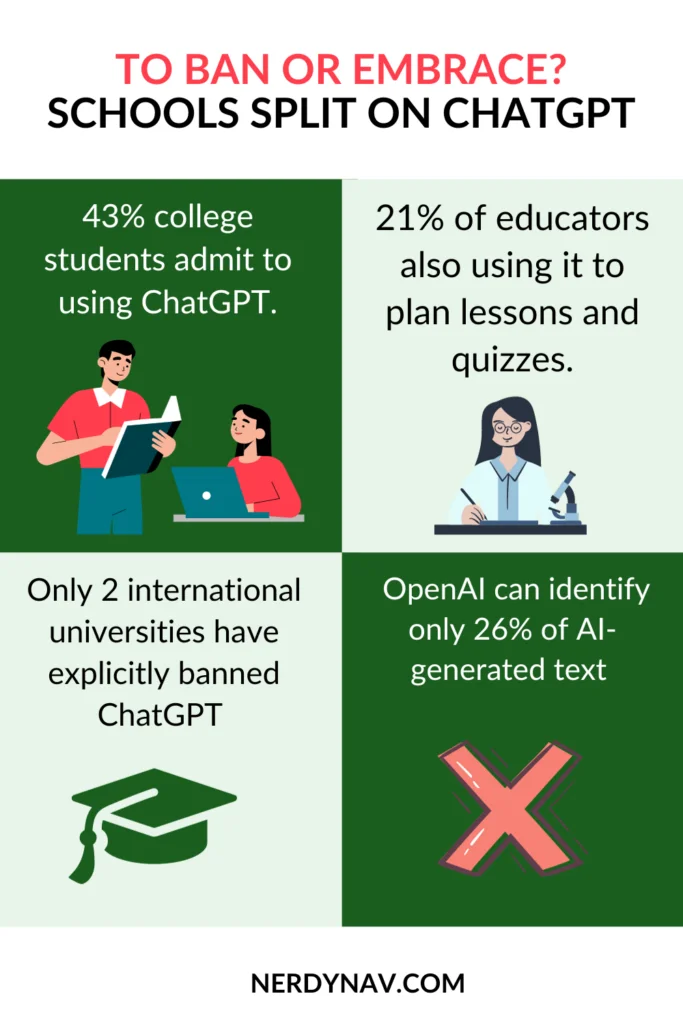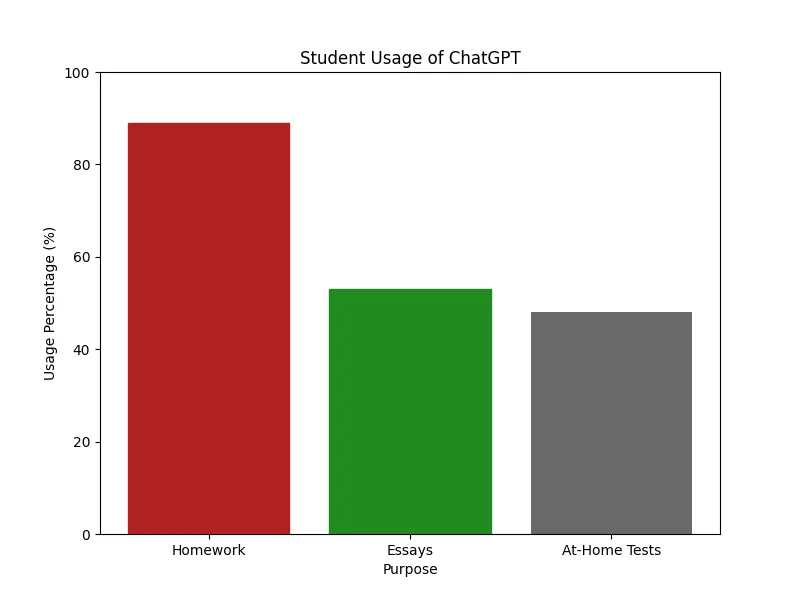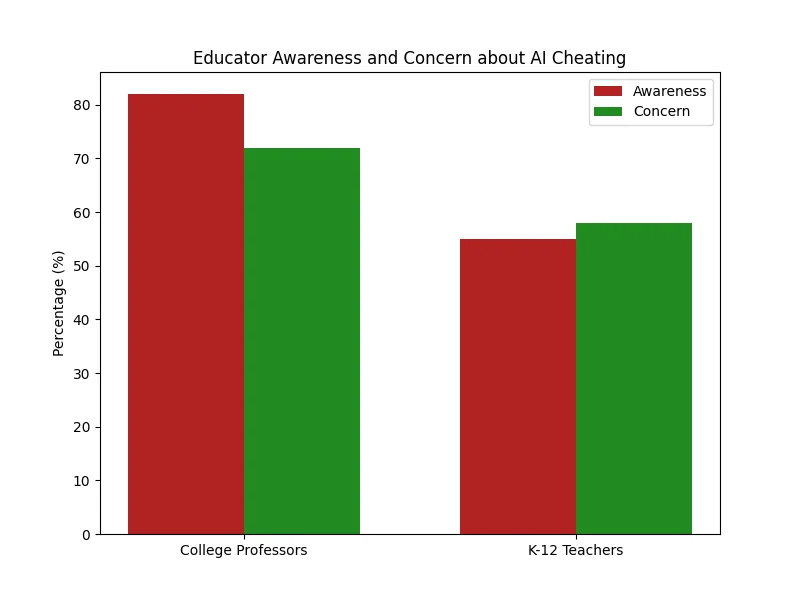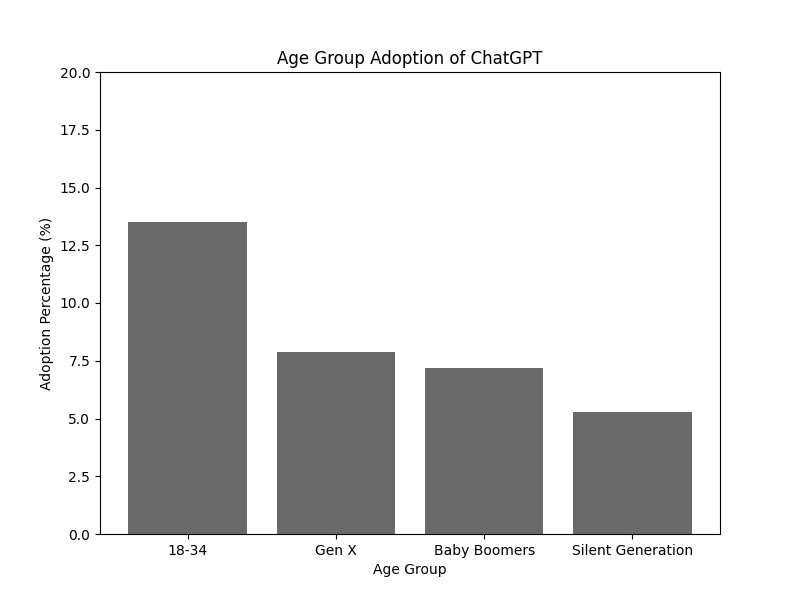
ChatGPT has stormed into the classroom, leaving administrators scrambling to respond. With students using the AI to write entire assignments, teachers fear an epidemic of high-tech cheating.
Here, you’ll find a comprehensive roundup of ChatGPT cheating statistics, along with handpicked news on AI-fueled plagiarism. Let’s dive in.

How Many Students Are Using ChatGPT?

- 43% of college students have used ChatGPT or similar AI tools.
- Of these, 89% used it for homework, 53% for essays, and 48% for at-home tests.
- 26% of K-12 teachers have caught a student cheating with ChatGPT, as per a Daily Mail survey.
- A survey by GovTech found that 50% of teachers knew at least one student who was punished or faced negative consequences for using ChatGPT to do their assignments.
- Students surveyed said that they rarely used ChatGPT to cheat, but to deal with anxiety or mental health issues, issues with friends, or family conflict. Yet, 2/3rd of the teachers reported having grown more distrustful of students.
Is Using ChatGPT Considered Cheating?
- 51% of students think using ChatGPT is cheating, but 22% still do it. (BestColleges)
- ScienceDirect suggests using ChatGPT could violate university academic dishonesty policies.
- Scribbr labels passing off AI-generated content as your own work as academically dishonest.
How Many Universities Have Banned ChatGPT?
Only Sciences Polytechnic in Paris and RV University in Bengaluru have officially banned ChatGPT.
How Many Teachers Are Using ChatGPT?

- 82% of college professors are aware of ChatGPT, compared to only 55% of K-12 teachers.
- 72% of college professors and 58% of K-12 teachers express concern about AI’s role in cheating.

- 21% of educators find some value in ChatGPT, using it for tasks like writing prompts (7%), content delivery (5%), or planning full lessons (4%).
- Some high schools in Denmark are using ChatGPT as a teaching tool instead of banning it. They believe that the tool can help students improve their writing and research skills. (Source: MSN)
Students Using ChatGPT to Write College Admission Essays
According to another survey by BestColleges about students using AI for college essays:
- Half of college students (50%) say colleges should screen for the use of AI on applications.
- The majority of college students (56%) believe using AI tools on college applications would give some applicants an unfair advantage.
- However, 4 in 10 college students (39%) say using AI tools on admissions applications would improve access and opportunities for traditionally underserved students.
- 42% of college students would not trust admissions offices to use AI tools in admissions decisions.
How to Cite ChatGPT in Research Papers?
Citing ChatGPT in research is a bit of a gray area, but there are some guidelines you can follow:
- APA Style: According to the APA Style blog, you can create references for AI tools like ChatGPT and present the AI-generated text in your paper.
- Nonrecoverable Content: According to University of Minnesota, content from generative AI like ChatGPT is considered nonrecoverable, meaning it can’t be retrieved by others. A good workaround is to use the citation style for personal communication or correspondence, unless the referencing style has specific guidelines.
What Are The Challenges In Detecting AI Content?
- No Clear Signs: AI can write almost perfectly, making it hard to spot mistakes that would give it away. But it can also add errors on purpose to look more human and avoid getting caught.
- Copycat Skills: AI can copy different writing styles. This makes it tough to tell if a piece of writing is by a human or a machine.
- Always Changing: AI keeps getting better at writing. This means what worked to catch it yesterday might not work tomorrow.
- Lack of Data: We don’t have enough samples of AI writing to train systems that can catch it reliably. Plus, not everyone has access to the data and tools needed to study this.
- Hidden in Plain Sight: When AI writes something long, like an essay, it’s even harder to tell it’s not human. The writing just blends in.
Who’s Adopting ChatGPT the Fastest?

- Adoption rates for those aged 18-34 are nearly double those of older age groups.
- Specifically, 13.5% of millennials and Gen Z use ChatGPT, compared to 7.9% of Gen X and 7.2% of baby boomers. The silent generation is at 5.3%.
- The lagging awareness among the older age groups could be a reason for increasing distrust and suspicion towards students’ use of ChatGPT, who are adopting AI tools faster than their teachers.
Way Forward
Let’s be real: this tech isn’t going away. Banning it or turning a blind eye isn’t the answer.
Here’s my take: let’s teach students to use AI as a starting point, not the final product. Encourage them to create initial drafts with AI, then guide them on how to improve, add their own insights, and truly make it their work.
This approach will demand more hands-on teaching, not less. It’s a tough shift for many educators, but challenges like this can spark real change and innovation.
Sources for statistics in this article:
- BestColleges AI Tools Survey
- Study.com Survey of ChatGPT Perception
- Emarketer
- Statista
- 5 Best No-Code App Builders 2024 (used by actual startups) - June 15, 2024
- 5 Successful No Code Startups and Companies 2024 (with Tech Stack) - January 26, 2024
- AI Sleeper Agents: Latest Danger to AI Safety (Anthropic Research) - January 20, 2024
